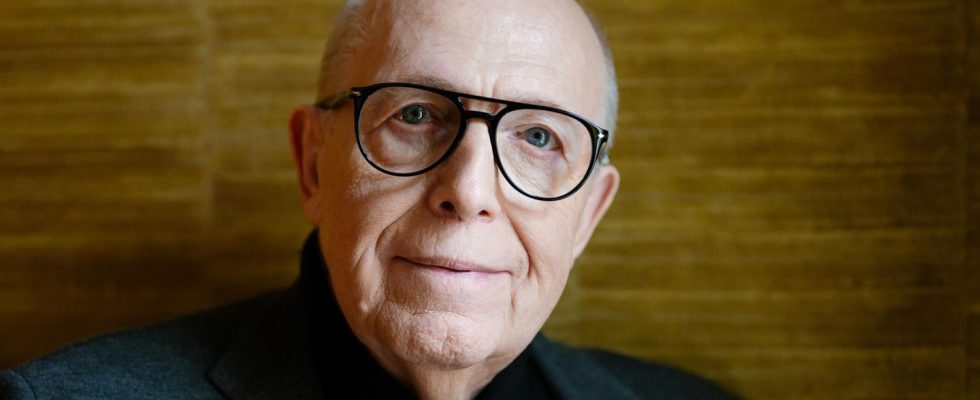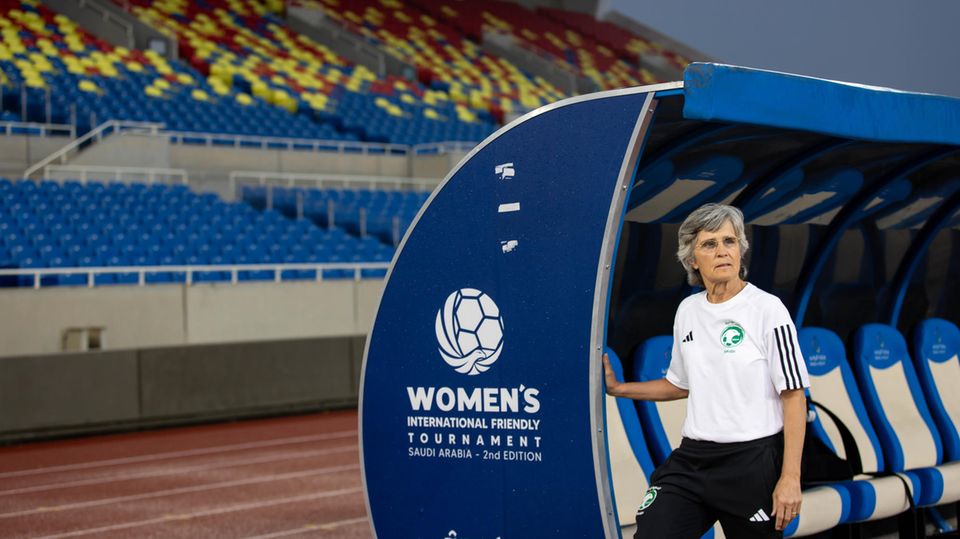Football manager legend
“Calli” turns 75: Why Reiner Calmund never worked in the Bundesliga again
“Man, young, that really got me thinking”: football manager legend Pure Calmund
© Oliver Dietze / DPA
Reiner Calmund worked for Bayer Leverkusen for almost thirty years, many of them as a manager. Now “Calli” is celebrating his 75th birthday and explains why he never signed with another club again.
“Jung, that really got me thinking,” he says in typical Calli fashion when asked about his end as football manager in 2004. From 1976 until that summer almost 20 years ago, he worked for Bayer Leverkusen, and his record with the club he loves makes impressive reading. Thanks to his industriousness, Bayer celebrated the greatest successes in its club history to date: UEFA Cup winner in 1988, DFB Cup winner in 1993, Champions League finalist in 2002. Of course, the tragic Vice-President years for him, as the factory club, are also remembered finished second in the Bundesliga four times between 1997 and 2002.
TV appearances for Reiner Calmund
But still: At the tender managerial age of 55, Calmund left Leverkusen in the summer of 2004 as someone who had turned a former second division team into a top club. So why did he never work for another club in an official capacity after that? Why did someone like him, who didn’t despise the limelight, manage to leave such a dazzling business so consistently? So he thinks about an answer. “I have to think about it. I had one or two good offers straight away, but I was also pretty burnt out. Almost 30 years in a row, always in charge, always under the microscope, that leaves you empty,” he says.
He recharged his batteries during a vacation in the USA with his wife Sylvia, and in late summer 2004 he actually felt ready again. But instead of a Bundesliga team, RTL gets in touch. The TV station wants him for the entertainment show “Big Boss”, where Calmund is supposed to choose a young manager from twelve candidates in eleven shows. He agrees, and he also signs “big advertising contracts” with large companies and is hired as an ambassador for the 2006 World Cup in Germany. “With all these things, I suddenly earned in two years what I would have had to work for five years in the Bundesliga,” he says. “That was gigantic.”
But it’s not just the money that makes it easier for him to say goodbye to football. “With Big Boss he was suddenly in a parallel world,” remembers his wife Sylvia. “He was away for three months. It took such a toll on him that he didn’t have any time to think about football.” Calmund goes into the entertainment business and discovers a new passion. “He was previously known to the public as a puppet master in football. Big Boss created a bit of an image of him as the manager of a business company,” says Sylvia.
Football Bundesliga
From deer heads to condoms to Gazprom – a selection from 50 years of jersey advertising
There was no way back to the Bundesliga
In any case, from this point on a new career begins in Reiner Calmund’s life. He is invited to cooking and talk shows, and in 2009 a “slimming documentary” by him and the musician Joey Kelly was even broadcast. To this day, Calmund takes place on a wide variety of channels. He practically switches from one entertainment business to another. However, he will never go back to the Bundesliga show business.
Nevertheless, a number of companions from many years in football are coming to his birthday party on Sunday at the Dorint Hotel in Cologne. Because despite everything, Calmund was still somehow involved in the background of the Bundesliga. “Football has always played a big role in my life, even after 2004,” he says. And that won’t change even after his 75th birthday.


